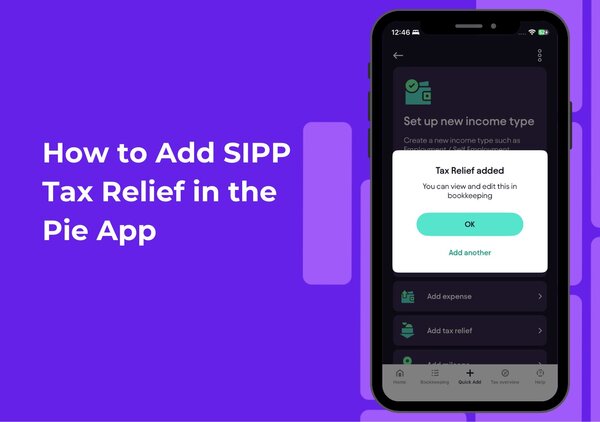Your employment history holds the key to getting your taxes right. Every job change creates a paper trail that HMRC tracks closely.
Missing employment records can lead to incorrect tax codes and unexpected bills. Getting your employment history organised saves both time and money. There are several reasons why individuals or organizations may need to access employment history, such as for tax purposes, job applications, or background checks.
In this article, we’ll cover how your employment history impacts your tax obligations and what records you need to keep. Companies and potential employers may request your employment history and check references as part of their verification process.
What Exactly Does Employment History Mean?
Your employment history is your complete record of every job you’ve ever had. This includes all the dates you started and finished each role, salary details, and the duties you performed in each position.
It covers your job titles, employer information, and the specific duties associated with each role. HMRC wants to see your P45s and P60s from each position you’ve held.
Don’t forget about contract work, freelance jobs, or self-employment periods. Even gaps between jobs matter, especially if you need to support a claim for benefits or compensation during those times.

Why Does HMRC Care So Much About Your Job History?
They need to track your total income across all your different employers. Multiple jobs can easily push you into higher tax brackets without you realising it.
HM Revenue & Customs (HMRC) uses your employment history to track revenue from income and tax payments, ensuring accurate records for both tax and National Insurance contributions. Employment and tax records are managed by hm revenue to maintain up-to-date information on your earnings and tax status.
Emergency tax codes often kick in when employment records go missing. Your previous employers might have made mistakes with your tax deductions too.
Self-employment income must be declared separately from your regular job. Additionally, benefits and redundancy payments can change your overall tax bill significantly.
Which Employment Documents Should You Actually Keep?
Your P45 forms are gold dust – keep them from every job you leave. P60 annual summaries show your yearly earnings from each employer throughout the tax year. These are official forms required for tax and employment records.
Monthly or weekly payslips serve as proof of your employment and income and help track deductions. Each payslip or summary is typically a single page that should be kept for your records. Contract details matter for freelance and temporary work arrangements as well.
Keep expense receipts that relate directly to your employment. Furthermore, save any letters about tax code changes since they explain important adjustments.

How Do Job Changes Mess With Your Tax Code?
New employers often stick you on emergency tax codes initially. This happened to my colleague Sarah when she switched jobs mid-year – she ended up paying far too much tax for three months.
Multiple jobs usually mean one gets a BR (basic rate) code. Your final pay from your last job affects your current tax allowances too. If you are a candidate moving between roles, these changes can impact your take-home pay during the hiring process.
Underpayments from old roles can reduce your allowances going forward. However, company benefits like cars or health insurance carry over between jobs automatically.
Student loan deductions transfer automatically to your new employer. This system works well once everything’s properly set up with HMRC.
Note: When changing jobs, ensure your new employer has the correct tax code and details about any company benefits, as errors can affect your pay and benefits continuity.
Start and End Dates: Why They Matter for Your Tax Records
Start and end dates are an important part of your employment history, as they provide a clear timeline of your work with each employer. When you request your HMRC employment history, these dates help verify exactly when you were employed and for how long. Accurate start and end dates are essential for your tax returns, as they determine which tax year your income falls into and ensure your National Insurance contributions are recorded correctly.
In most cases, your employer will report your start and end dates directly to HMRC, but it’s always wise to double-check this information. Mistakes or missing dates can affect your entitlement to benefits, such as state pensions or unemployment support. If you notice any discrepancies, you can obtain the correct dates by contacting your previous employers or by reviewing your HMRC employment history online. Verifying these details now can save you from headaches later, especially if you need to prove your work history for benefits or future employment.

Income Details and Your Employment History
Your income details are a vital part of your employment records, showing exactly how much you earned and how much tax and National Insurance you paid. When you access your HMRC employment history, you’ll find a breakdown of your gross income, tax deductions, and National Insurance contributions for each job. These details are not only important for making sure you’ve paid the right amount of tax, but also for supporting any benefits claims you might make, such as Universal Credit or tax credits.
It’s a good idea to review your income details regularly to ensure everything matches your own records. If you spot any errors, you can request corrections from HMRC or ask a tax agent for help. Having accurate income details on file makes it much easier to complete your tax returns and can help you avoid issues with over- or under-paying tax. You can request your income details directly from HMRC online, or get further information and support from a qualified tax agent if needed.
National Insurance and Tax: What’s the Connection?
National Insurance and tax go hand in hand when it comes to your employment history. While your tax payments help fund public services, your National Insurance contributions are used to build up your entitlement to state benefits, such as the State Pension or unemployment support. Every time you’re paid by an employer, both tax and National Insurance are deducted and reported to HMRC.
Your HMRC employment history provides a detailed record of both your tax payments and National Insurance contributions. This information is crucial if you ever need to verify your eligibility for benefits or check your National Insurance record. If you’re unsure about how your contributions affect your benefits, you can find more information on the HMRC website or speak to a tax agent for personalised advice. Keeping an eye on both your tax and National Insurance records ensures you’re getting the benefits you’re entitled to and paying the correct amount.

What Goes Wrong When Employment Records Disappear?
HMRC will estimate your income and they’re rarely generous with their guesses. You could face nasty surprise tax bills at the end of the year.
It’s crucial to maintain your own personal records of employment, earnings, and contributions to avoid these issues.
Getting refunds becomes much harder without proper paperwork. You might be forced into Self Assessment when you’d normally avoid it entirely. If you’re missing documents, information may need to be formally requested from HMRC or previous employers, and you may have to fill out forms or applications to reconstruct lost records. Employment records from HMRC are based on data submitted by employers’ payroll teams, ensuring their accuracy and reliability.
Rebuilding lost records often means paying for professional help. Additionally, incomplete tax returns can trigger penalties and extra scrutiny from HMRC.
How Can You Get Your Employment History Sorted?
Create a simple spreadsheet or digital record listing dates and employer details. Each digital record should be organized as a page that can be printed or saved for your reference. Scan your important documents and store copies digitally for easy access, and remember to print or save digital copies of your employment history pages for backup.
Set up a basic filing system for each tax year. To access your employment records online, you need to sign in and be signed in to HMRC’s online services using your Government Gateway account. You will also need your National Insurance number to access these records. If you prefer, you can contact HMRC by phone as an alternative method to request your employment data. When requesting documents, make sure to provide your correct address so they can be sent to you.
Keep your data secure and up to date, and be aware that you may need to give consent if someone else is accessing your records on your behalf. Maintaining a candidate's work history is important for job applications, as it provides a comprehensive view of employment background.

Getting Help With Your Employment Tax Records
Keeping track of your employment history doesn’t need to be overwhelming. A simple system and regular checks, such as filling out the correct form for official requests, prevent most costly mistakes from happening.
HMRC’s online tools make staying organised easier than ever before, including accessing your Pay As You Earn (PAYE) records for current and previous years. If you are self-employed and unable to work due to illness, you can find guidance on what steps to take. If you need assistance, you can contact HMRC or a tax professional for help, and for complex employment history or tax issues, consulting a legal adviser is recommended.
Pie stands out as the UK’s first personal tax app, specifically designed to help working individuals manage their tax responsibilities. For example, Pie can help candidates looking for jobs organize their employment history, making it easier to provide accurate records to employers. It offers integrated bookkeeping, real-time tax calculations, simplified return processing, and expert advice when you need it most.
Ready to take control of your employment tax records? Start by gathering your recent P60 and P45 documents, then let Pie help you stay organised year-round.











